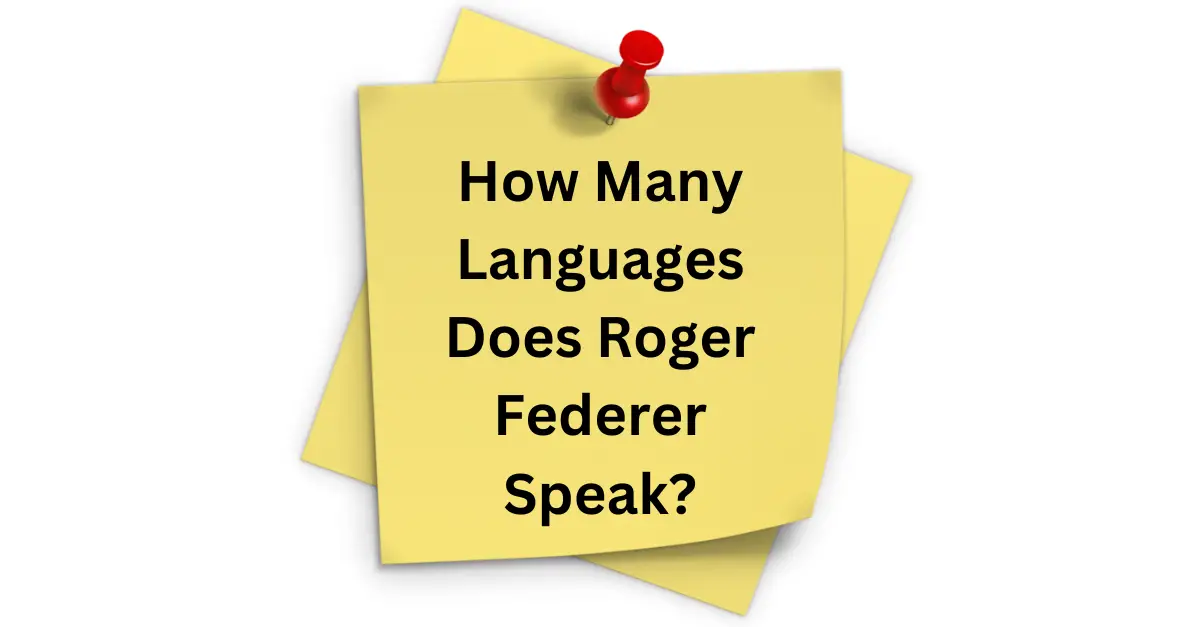In this article, you will discover how to say “Happy Birthday” in Wolof, a language spoken in Senegal and the Gambia. As part of our language learning series, we aim to provide practical insights into various languages, catering to learners of all levels. By exploring different languages and their cultural elements, we hope to foster an appreciation for linguistic diversity and encourage an interest in language learning. So, if you’re curious about how to wish someone a happy birthday in Wolof, stay tuned for some useful phrases and pronunciations. Let’s celebrate in Wolof!
Introduction to Wolof Language
Brief Overview of Wolof
Wolof is a language spoken in Senegal, Gambia, and Mauritania, with over 10 million speakers worldwide. It is the native language of the Wolof people, the largest ethnic group in Senegal. The language has its roots in the Senegambian region and is a member of the Niger-Congo family of languages. With its rich oral tradition and unique linguistic features, Wolof is a fascinating language to explore and learn.
Wolof as a Senegalese Language
Wolof holds significant importance in Senegal, where it is recognized as a national language alongside French. It plays a crucial role in various aspects of Senegalese society, such as education, media, and cultural expression. Many Senegalese people are bilingual in Wolof and French, with Wolof serving as the primary language for communication in everyday life.
Wolof’s Influence and Importance
Beyond its significance in Senegal, Wolof has influenced neighboring languages and cultures in the West Africa region. It has permeated into the cultural fabric of countries such as Gambia, Mauritania, and Guinea-Bissau. Through music, dance, and traditional practices, the Wolof language has helped shape a distinct pan-African identity, fostering a sense of unity amongst different ethnic groups.
See Also: Happy Birthday In Swedish
Greetings and Occasions
Common Greetings in Wolof
Greetings play a vital role in Wolof culture. Here are some common greetings you can use to greet someone in Wolof:
- “Nanga def?” – How are you?
- “Maangi fi?” – How is your family?
- “Jërejëf” – Thank you.
These basic greetings will help you create a friendly atmosphere when interacting with Wolof speakers.
Traditional Celebrations in Wolof Culture
Wolof culture is rich in traditional celebrations that showcase the community’s vibrant heritage. One such celebration is the “Tobaski,” also known as Eid al-Adha, which commemorates Ibrahim’s willingness to sacrifice his son as an act of obedience to God. Families come together to pray, share meals, and exchange gifts during this festive occasion.
See Also: Happy Birthday In Tahitian
Special Occasions and Customs in Wolof
In Wolof culture, special occasions are marked with unique customs and traditions. Weddings, for example, are elaborate ceremonies that involve colorful attire, traditional dances, and feasts. The bride and groom’s families come together to celebrate the union, honoring their heritage and demonstrating the importance of community bonds.
Language Structure and Pronunciation
Phonetic Principles of Wolof
Wolof follows certain phonetic principles that dictate the pronunciation of its words. Understanding these principles is crucial to mastering the language’s pronunciation. The language uses a modified Latin alphabet, with some additional letters to represent specific sounds that are unique to Wolof.
Unique Sounds and Phonemes in Wolof
Wolof has several unique sounds and phonemes that may be unfamiliar to English speakers. For example, the sound “ñ” represents a nasalized “n” sound, similar to the Spanish “ñ” in “señor.” Additionally, Wolof has distinct tonal qualities, with rising and falling tones that can change the meaning of words.
Tips for Pronouncing Wolof Words Correctly
To accurately pronounce Wolof words, it is helpful to practice the language with a native speaker or a reliable language-learning resource. Pay attention to the different tones and practice nasalizing certain sounds, such as the “ñ” mentioned earlier. With practice, you will gradually improve your pronunciation and be better understood by native Wolof speakers.
Basic Wolof Phrases
Essential Phrases for Everyday Communication
Mastering basic phrases is a key step in learning any language. Here are some essential phrases in Wolof that will help you navigate everyday conversations:
- “Ba beneen yon” – Please.
- “Nanga def?” – How are you?
- “Waaw” – Yes.
- “Déedéet” – No.
- “Jërejëf” – Thank you.
Polite Expressions and Responses in Wolof
Politeness is highly valued in Wolof culture. Using polite expressions and responses will go a long way in showing respect to others. When someone thanks you, you can respond with “Derëm ak jërejëf,” which means “You’re welcome” in Wolof.
Useful Vocabulary for Travelers in Wolof
If you’re planning to visit a Wolof-speaking country, knowing some useful vocabulary will greatly enhance your travel experience. Here are a few words to help you get by:
- “Ndar” – City.
- “Ganar” – Market.
- “Tabax” – Restaurant.
- “Dalal” – Hotel.
- “Toog” – Beach.
Being able to communicate basic needs and navigate your surroundings will make your trip more enjoyable and immersive.
Numbers and Time Expressions
Counting and Basic Numerical Expressions in Wolof
Learning numbers in Wolof is essential for various everyday situations, such as buying groceries or understanding prices. Here are the numerals from one to ten in Wolof:
- “benn”
- “ñaar”
- “ñett”
- “Ñeent”
- “juróom”
- “juróont”
- “juróodo”
- “juróobéer”
- “juróojóor”
- “fukk”
Telling Time and Understanding Time-related Terms in Wolof
Knowing how to tell time is crucial for scheduling appointments and coordinating activities. In Wolof, the phrase “Ñatt ay” is commonly used to ask for the time. Here are some helpful time-related terms in Wolof:
- “suba” – morning.
- “carwi” – afternoon.
- “ñaar tànk” – evening.
- “leeb” – night.
- “fukk nañu” – exactly.
Using Dates and Calendars in Wolof
Understanding dates and calendars is important for organizing events and making plans. In Wolof, the months are typically referred to using the Arabic numerals, while the days of the week are often mentioned in Wolof or French. It is also helpful to familiarize yourself with Wolof expressions for days, months, and years to effectively communicate time-related information.
Formal and Informal Speech
Differentiating Formal and Informal Language in Wolof
Wolof, like many languages, distinguishes between formal and informal speech. Informal language is used with friends, family, and peers, while formal language is reserved for situations that require respect and professionalism. It is essential to understand these nuances and adapt your speech accordingly.
Polite Forms of Address in Wolof Conversations
When addressing someone in a formal setting in Wolof, it is customary to use respectful terms. The term “Maodo” can be used to address a man, while “Ndey” is used for women. These honorifics demonstrate respect and create a polite tone in conversations.
Situational Usage of Formal and Informal Speech
Knowing when to use formal or informal speech is essential for effective communication in Wolof. In formal situations, such as business meetings or official interactions, it is best to use formal language to convey respect. Informal speech, on the other hand, is suitable for casual conversations with friends and family.
See Also: Happy Birthday In Tigrinya
Cultural Etiquette and Customs
Respecting Elders and Social Hierarchy in Wolof Culture
In Wolof culture, respect for elders and social hierarchy is of utmost importance. It is customary to greet elders with a formal greeting and use respectful language when addressing them. Additionally, deference is given to those in positions of authority, such as community leaders. Observing these customs will show your appreciation for Wolof culture and foster positive relationships.
Gestures, Body Language, and Non-verbal Communication in Wolof
Non-verbal communication plays a significant role in Wolof culture. Handshakes, hugs, and other physical gestures are common ways to show warmth and respect. Maintaining eye contact when conversing is considered a sign of attentiveness and sincerity. Understanding and adopting these non-verbal cues will help you navigate social interactions in Wolof-speaking communities.
Taboos and Customs to Be Mindful of in Wolof-speaking Communities
Every culture has its taboos and customs, and it is important to be aware of them to avoid causing offense. In Wolof-speaking communities, it is considered disrespectful to use the left hand for greetings or eating. Additionally, discussing certain topics, such as personal finances or sensitive family matters, may be seen as invasive. Being mindful of these customs will demonstrate your cultural sensitivity and respect for Wolof traditions.
Celebrating Birthdays in Wolof
Significance of Birthdays in Wolof Culture
Birthdays hold a special place in Wolof culture and are celebrated with great enthusiasm. They are seen as a milestone in a person’s life, marking another year of growth and wisdom. Birthdays are an opportunity for family and friends to come together, reflect on the past, and wish the individual well in the future.
Birthday Traditions and Customs in Wolof-speaking Communities
Wolof birthday celebrations often involve vibrant parties where family and friends gather to honor the birthday person. Traditional drumming, dancing, and singing are common features of these celebrations. Elders and family members offer blessings and well wishes to the individual, reinforcing the importance of community and connection.
Gift-giving Etiquette and Birthday Celebrations
Gift-giving is an integral part of Wolof birthday celebrations. When attending a birthday party, it is customary to bring a gift for the birthday person. Common gifts include clothing, accessories, or practical items that hold personal significance. The act of giving a thoughtful gift is seen as a gesture of love and appreciation.
Wolof Birthday Greetings and Wishes
Traditional Birthday Greetings in Wolof
When celebrating a birthday in Wolof, you can use the following traditional birthday greetings:
| Wolof Phrase | English Translation |
|---|---|
| Yendu jëf | Happy birthday |
| Yendu def jëf | Happy birthday to you |
| Yendu ñuul jëf | May you celebrate many birthdays |
| Nga terekkéy wala ba beneen ak ñut | May you live long and in good health |
| Nit ñuul | Many blessings |
| Jëf jëf | Congratulations |
These greetings will bring joy to the birthday person and make them feel loved and appreciated.
Common Phrases for Congratulating Someone on Their Birthday in Wolof
In addition to traditional greetings, here are some common phrases you can use to congratulate someone on their birthday in Wolof:
- “Nga terekkéy wala ba beneen ak ñut” – May you live long and in good health.
- “Nit ñuul” – Many blessings.
- “Jëf jëf” – Congratulations.
Expressing these well wishes will convey your happiness for the person’s special day and their future.
Singing Happy Birthday in Wolof
Singing “Happy Birthday” in Wolof is a heartfelt way to celebrate someone’s special day. Here is the Wolof version of the song:
“Yendu jëf.”
Singing this simple phrase with enthusiasm and joy will create a festive atmosphere and make the birthday person feel cherished.
Conclusion and Language Learning Tips
Appreciating the Beauty of Wolof Language and Culture
Learning Wolof opens up a world of cultural richness and linguistic diversity. By immersing yourself in the language, you gain a deeper understanding of Wolof culture and its people. Appreciating the beauty of the Wolof language fosters a sense of connection and respect for this vibrant African culture.
Tips for Learning Wolof Effectively
Learning a new language requires dedication and practice. Here are some tips to help you learn Wolof effectively:
- Immerse yourself: Surround yourself with Wolof resources, such as music, movies, and books, to expose yourself to the language.
- Practice regularly: Set aside dedicated time to practice speaking, listening, and reading in Wolof.
- Find a language partner: Connect with a native Wolof speaker who can help you practice and provide guidance.
- Use online resources: Take advantage of language-learning apps, websites, and online communities to support your learning journey.
Continuing the Language Learning Journey
Learning Wolof can be a rewarding experience that opens doors to new friendships and cultural understanding. As you continue your language learning journey, remember to embrace the challenges, enjoy the process, and celebrate your progress along the way. With perseverance and an open mind, you will develop a deeper appreciation for the Wolof language and the vibrant Senegalese culture it represents.




